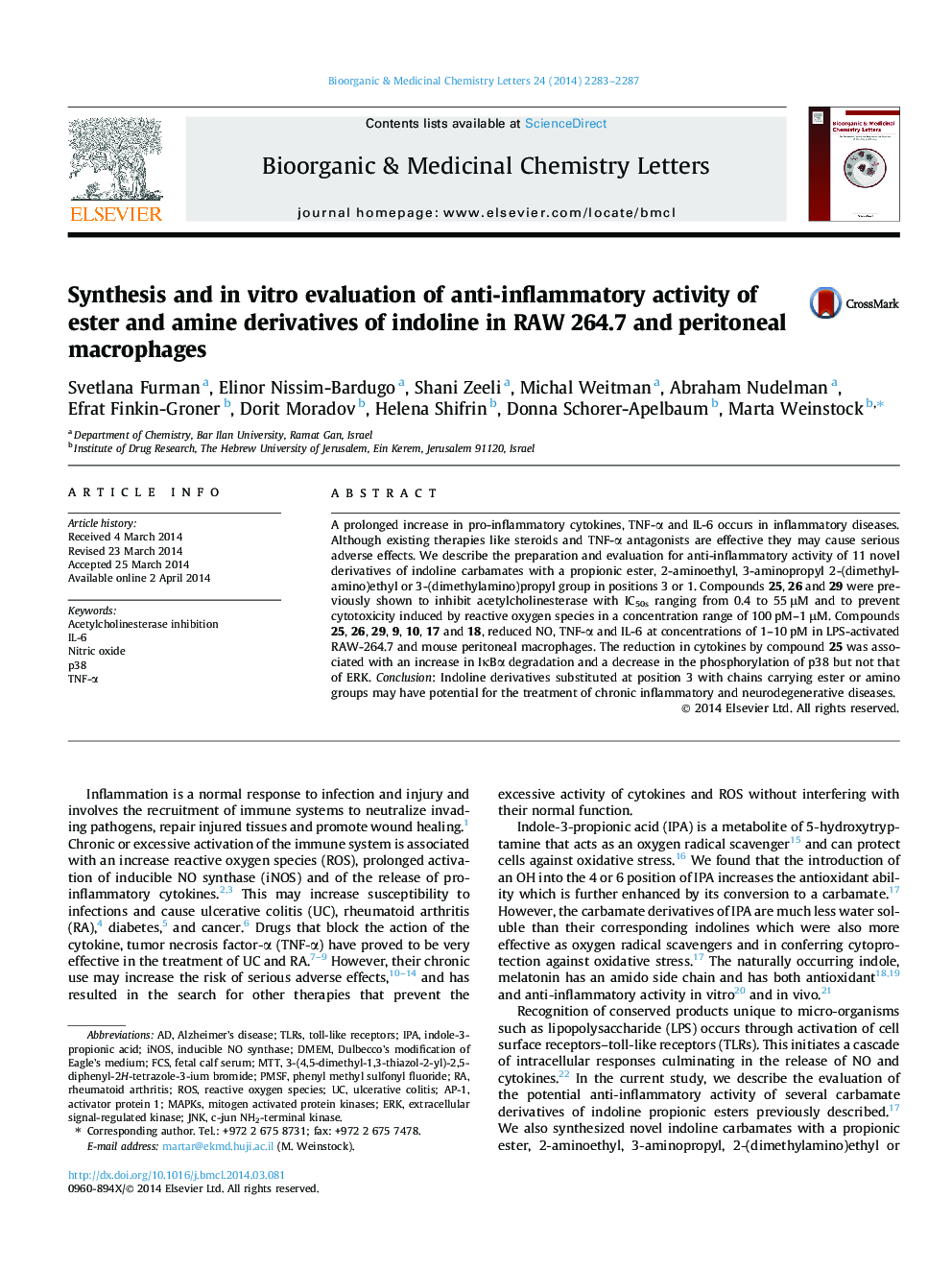| Article ID | Journal | Published Year | Pages | File Type |
|---|---|---|---|---|
| 1369043 | Bioorganic & Medicinal Chemistry Letters | 2014 | 5 Pages |
A prolonged increase in pro-inflammatory cytokines, TNF-α and IL-6 occurs in inflammatory diseases. Although existing therapies like steroids and TNF-α antagonists are effective they may cause serious adverse effects. We describe the preparation and evaluation for anti-inflammatory activity of 11 novel derivatives of indoline carbamates with a propionic ester, 2-aminoethyl, 3-aminopropyl 2-(dimethylamino)ethyl or 3-(dimethylamino)propyl group in positions 3 or 1. Compounds 25, 26 and 29 were previously shown to inhibit acetylcholinesterase with IC50s ranging from 0.4 to 55 μM and to prevent cytotoxicity induced by reactive oxygen species in a concentration range of 100 pM–1 μM. Compounds 25, 26, 29, 9, 10, 17 and 18, reduced NO, TNF-α and IL-6 at concentrations of 1–10 pM in LPS-activated RAW-264.7 and mouse peritoneal macrophages. The reduction in cytokines by compound 25 was associated with an increase in IκBα degradation and a decrease in the phosphorylation of p38 but not that of ERK. Conclusion: Indoline derivatives substituted at position 3 with chains carrying ester or amino groups may have potential for the treatment of chronic inflammatory and neurodegenerative diseases.
Graphical abstractFigure optionsDownload full-size imageDownload as PowerPoint slide
